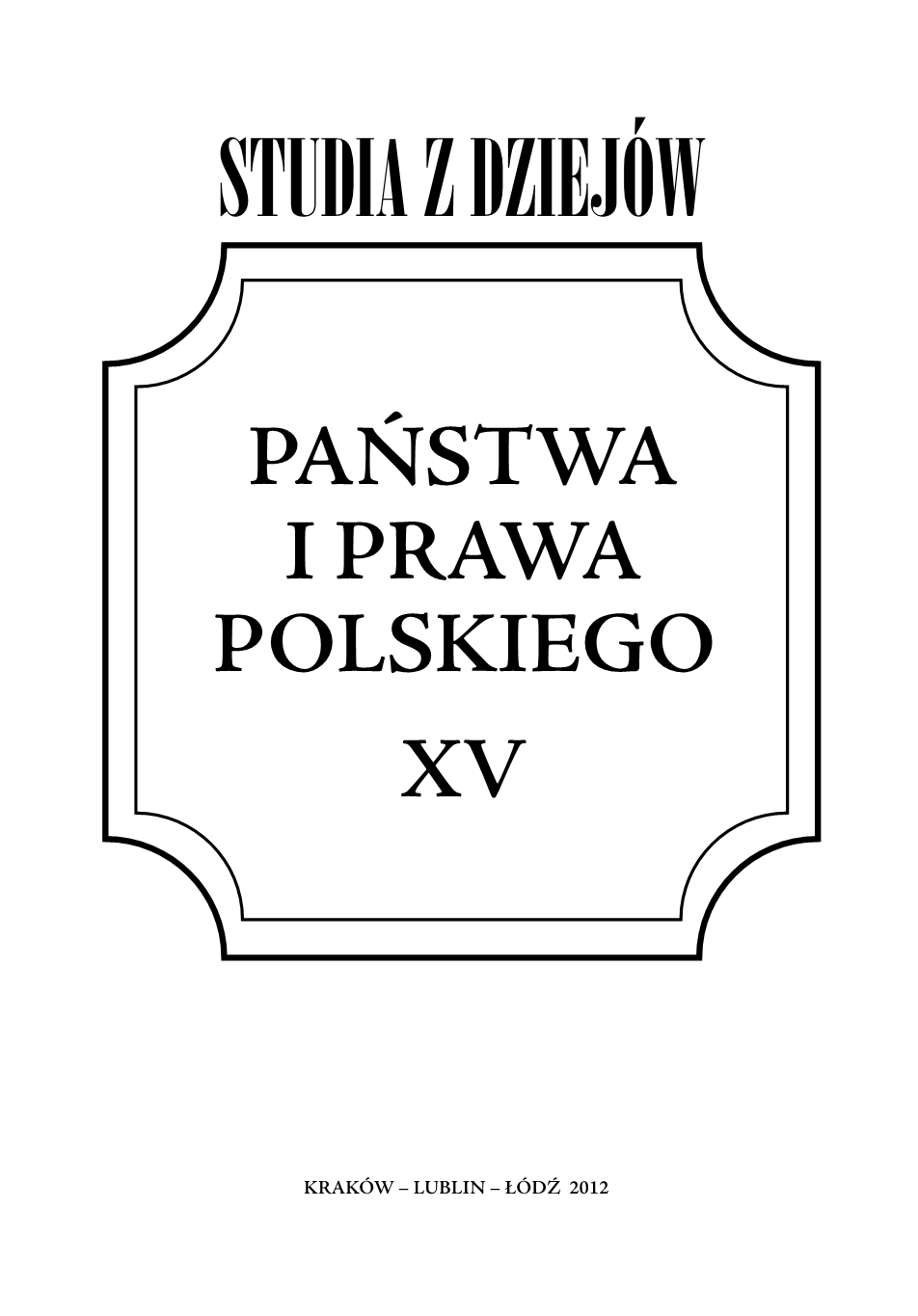Ustalanie tożsamości stron w świetle obowiązujących na ziemiach Królestwa Polskiego w XIX wieku przepisów notarialnych i hipotecznych a praktyka
Establishing the identity of parties in the lights of notary and mortgage rules binding in the Kingdom of Poland vs. practice
Author(s): Tomasz KubickiSubject(s): Law, Constitution, Jurisprudence, History of Law, 19th Century
Published by: Oficyna Wydawnicza KA AFM
Keywords: Kingdom of Poland
Summary/Abstract: Ascertainment of the identity of people participating in notary actions in the days of the Duchy of Warsaw and the Kingdom of Poland was regulated by the provisions of the French notary act of 1803, and beginning with 1876 – with Russian notary regulations of 14th/26th April 1866 and the few bylaws. The identity of the party was described on the grounds of their first name, last name, the occupation or craft performed, place of residence, and the ability to participate in legal proceedings. The French regulations pointed to two ways of corroborating the identity of the party: either on the grounds of the personal knowledge of the notary or else corroboration of identity by two people recognising the person. The Russian notary act of 1866 introduced the third way, besides the two known from the French act, namely establishing the identity on the grounds of an official identification document. In case of inability to ascertain the identity of a party in another way (familiarity or testimony of the people recognising the person), identity could be corroborated through a document, for example, a passport, or another official document. The manner of establishing the identity of the parties was also mentioned in other regulations, the mortgage act of 1818, and the mortgage instruction of 1819, even though they did not differ from the stipulations of the French notary act of 1803. It was, however, only since 1818 that the option to corroborate the identity of participants in mortgage procedures with official identity documents, known from Russian notary act, became possible. In the Mortgage Department of the Court of Peace in Brzeziny, the identity of people was ascertained by the scribe on the grounds of the stipulations of mortgage law without the support of notary regulations. In most cases, corroboration of identity was based on the familiarity of the scribe with the participant in mortgage proceedings. The corroboration of identity of the parties by the notary receiving the acts of good will always followed the notary provisions, whether it was held in the mortgage office or outside it.
Journal: Studia z Dziejów Państwa i Prawa
- Issue Year: XV/2012
- Issue No: 1
- Page Range: 97-105
- Page Count: 9
- Language: Polish

